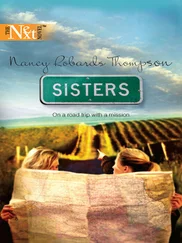Good afternoon, Emma. Aunt Dimity’s handwriting showed clearly through the faint pencil marks. My compliments on the vicarage garden. I enjoyed the lecture tour immensely.
“Th-thank you.” Emma looked furtively around the square and spoke out of the corner of her mouth. “It’ll be much better next year. It’s still pretty scruffy around the edges.”
Emma was, as usual, being too humble. In the past few weeks she’d transformed the vicarage garden from an untamed jungle into an enchanted bower. With Rainey’s help, she’d transplanted brightly colored plants from her own greenhouses—blue geraniums, white spirea, pink cranesbill, and mounds of yellow potentilla—into beds bounded by narrow, curving grass paths.
You’ve created a floral stained-glass window.Very appropriate to the setting. And you were right about the Rosa hemisphaerica. What a splendid discovery! I hope your tours were appreciated.
“I think they were,” said Emma. “I’ve raised fifteen pounds for the roof fund, and I’ve been around the vicarage so often I feel dizzy.”
“Dizzy enough to tell us what Derek’s done to the war memorial?” I inquired slyly.
Emma shook her head. “Sorry. My lips are sealed. Peggy would have a fit if word leaked out before closing ceremonies.”
“Not even a hint?” I wheedled.
“I’ve replaced the willows with holly bushes,” Emma said, then closed her mouth decisively.
She hadn’t told me anything I couldn’t see for myself. I glanced over at the circle of neatly trimmed holly bushes, burning to see what lay beneath the swath of black silk that had shrouded the war memorial for the past week. Rumor had it that Derek had carved a new name on the dignified stone cairn, but Peggy had kept such a close watch on the memorial that no one had been able to give an eyewitness report.
“Be that way,” I grumbled. “I can wait until closing ceremonies, just like everyone—”
“Mr. Peacock!” Peggy’s indignant voice thundered from next door, as it had so many times that afternoon. “If you don’t control that hound of yours, I’ll have his ears on a plate!”
“Sorry, Mrs. Kitchen.” Dick tugged a recalcitrant Grog away from the blue-painted concrete pillars in front of the tea shop.
Sally Pyne looked up from her table. She and Peggy had formed an alliance, of sorts. Sally had agreed to give away the Empire Tearoom’s bounty on festival day if Peggy would defend the tearoom’s pseudo-Ionic columns from the depredations of Finch’s canine contingent.
Peggy hasn’t spotted Buster yet, has she?
“Not yet,” I murmured.
Let’s hope Burt Hodge keeps Caesar on his lead. A dog with his capacity could put quite a damper on the festivities.
“Dimity!” I exclaimed.
Emma nudged me with her elbow. “Careful,” she said, but her warning came too late.
Peggy Kitchen had overheard my cry. She left her post at the tearoom and strode over to my table. “Dimity?” she said. “ That’s the name of the woman who used to own your cottage, isn’t it?”
“Yes,” I replied. “Emma and I were . . . discussing names for Annie Hodge’s baby. I like the sound of Dimity, don’t you?”
Peggy favored me with the superior smile of the well informed. “Annie told me the results of her last sonogram. The baby is a boy—a fine, healthy boy. She and Burt intend to call him Piero, after his grandfather. I only hope the child will be able to live up to his name.” She peered into my tin, then headed for the schoolhouse, calling over her shoulder, “Not having a very successful day, are you, Lori?”
Dimity’s handwriting flew across the page. There’s nothing shameful about second place.
I looked at the red ribbon lying beside the tin and gritted my teeth. Dick Peacock had awarded the blue ribbon to Lilian’s lemon bars, declaring that their tartness made a nice change from the sweetness of the meads he’d been sampling all afternoon. In my opinion, the man had been dead drunk when he’d judged the competition.
The vicar, unlike myself, had had a wholly satisfying day. Adrian’s students, under Emma’s supervision, had decorated Saint George’s aisles with sheaves of wheat, corn, and barley, filled the windowsills with bright-red apples and sprays of red barberries, and wreathed the pillars with wild hop vines and stringed ivy. I’d helped Emma dress the font with moss and white asters, and spread the floor with fresh-cut rushes, in hopes of easing the burden on the cleanup crew after the beast blessing.
The vicar was way ahead of us, however. He thought Saint George’s looked heavenly in its autumn finery, and he wasn’t about to let any creature, great or small, spoil the effect. He promptly decreed that the blessing of the beasts would take place at an open-air altar in the churchyard, and appointed Mr. Taxman the task of keeping the graveled paths clear of their offerings.
The vicar had raised a cheer during the morning service by publishing the banns of marriage between Peggy Kitchen and Jasper Taxman. Mr. Taxman had acknowledged the villagers’ good wishes with a jaunty lift of his shovel.
You were very wise not to enter Rob and Will in the Cutest Baby contest. Dimity was still attempting to console me for the ignominious red ribbon.
“I had no choice,” I said. “ There was only one prize, and the boys would have forced a tie.” I’d also withdrawn Reginald from the Floral Arrangement Around a Stuffed Animal competition to avoid the appearance of partiality. I hadn’t been able to award the blue ribbon to Rainey’s tiger, either, because Rainey had knocked her arrangement onto the schoolhouse floor before the judging had gotten under way. It was a pity, because everyone who’d seen Edmund Terrance peeking out from his jungle of black-eyed Susans and tiger lilies had agreed that he was the paws-down favorite.
Rainey had lost two of the chariot races to nine-year-old Paolo Sciaparelli, who’d become her best friend in Finch. The two of them had spent the rest of the day swiping Constantine creams from Sally’s table, derailing Mr. Wetherhead’s trains, and poking their heads under the fortune-teller’s tent.
It was hard to say whether Miranda Morrow’s contribution to the festival had been well received or not. There was no denying that she’d thrown herself into her role. She’d supplied her own crystal ball and dressed out landishly in hoop earrings, gold bangles, a fringed paisley shawl, and a stunningly embroidered peasant dress. People had chuckled good-naturedly at her costume, but they’d emerged from her tent looking more thoughtful than amused.
Mr. Wetherhead’s trains, on the other hand, had been an unqualified hit. Villagers had lined Saint George’s Lane, waiting to get a glimpse of his choo-choos. Bill and Derek had spent the past week helping him to display his collection to its best advantage and had, in the process, gone train-crazy. They used Rob and Will as an excuse to hang around the schoolmaster’s house for hours on end, but Emma and I knew which pair of little boys fought over the engineer’s cap and which behaved like gentlemen.
“I saw you taking pictures during the morris dancing,” Emma said. “Does Bill know you brought the camera?”
I looked at the stage Jasper Taxman had built at the south end of the green, opposite the war memorial, and grinned evilly at the memory of Bill thudding to and fro, bells jangling, hanky fluttering, and ribbons flying.
“I’m planning to surprise him,” I said. “You know those Christmas cards, the ones you can have personalized with a family photograph?”
Emma gasped. “You wouldn’t.”
“I might,” I said, “if he calls me Commando Lori one more time.”
Читать дальше








